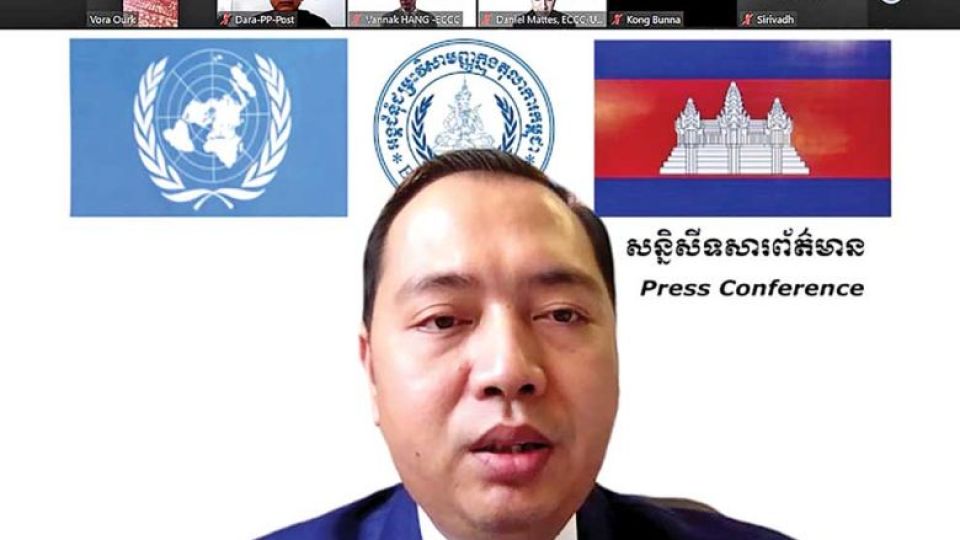May 4, 2022
PHNOM PENH – The Extraordinary Chambers in the Courts of Cambodia (ECCC) – commonly known as Khmer Rouge Tribunal – is holding a three-day workshop showcasing victim participation in the trial process and post-trial activities.
The workshop, “Victims and Dissemination of the Advisory Report on Victim-Related Activities of the ECCC during the Residual Phase”, is running from May 3-5. ECCC spokesman Neth Pheaktra announced in a press conference that the workshop will be illustrating the latest victim-related activities at the chambers.
“The workshop aims to showcase meaningful participation of victims during the trial process – especially related to compensation, which has been given out – as well as to show other remaining works to be done after the legal procedure is concluded at the ECCC,” he said.
Pheaktra said the purpose of the workshop was also to hear victims’ opinions on what remains to be done in the post-ECCC process for the benefit of those who had suffered at the hands of the Democratic Kampuchea regime.
The workshop is being attended by local and international legal experts, who will share their ideas and initiatives as regards victim participation in the Residual Phase.
Other topics to be discussed include experiences at the tribunal and lessons learned debriefs, conducted with the victims at the ECCC.
He said the workshop will also discuss ways to prevent such atrocities from happening in the future, especially by getting the youth to learn and remember the tragic past, in order to maintain national reconciliation.
Several victims in Case 001 and 002 – the first before the ECCC, involving Kaing Guek Eav alias Duch, the former chief of the Khmer Rouge S-21 Security Centre in Phnom Penh, and his superior Nuon Chea – will also be attending and sharing their views.
Cambodia has been working with the UN on concluding the trial process in Cambodia. In October, the National Assembly passed a draft law on the ending of the ECCC.
However, an additional agreement between the government and the UN has been signed regarding the remaining work at the ECCC, which is estimated to take around three years.


